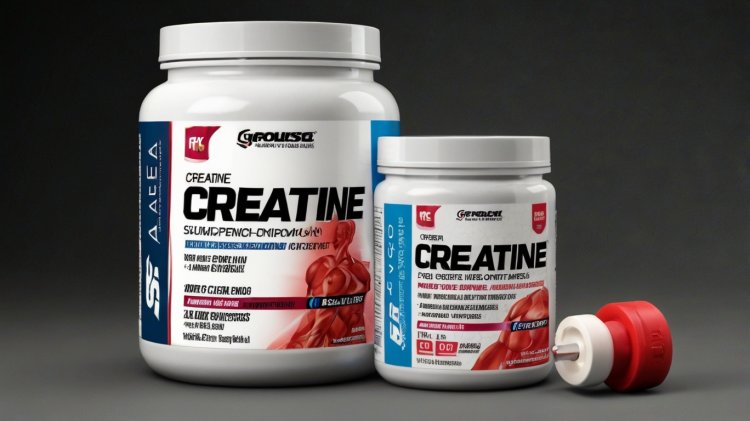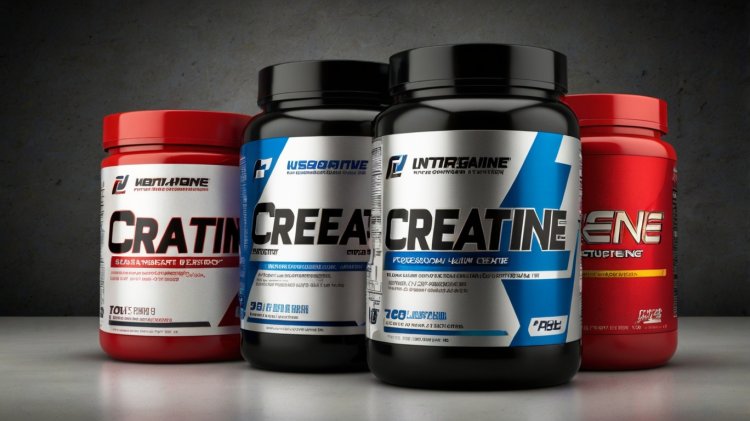The Comprehensive Guide to Creatine: Benefits, Uses, and How It Boosts Health and Performance
Introduction
Creatine is one of the most extensively studied and widely used supplements in fitness and health. Known for its ability to enhance athletic performance, build muscle, and even support brain health, creatine has become a staple in the wellness industry.
In this guide, we’ll explore the top health and performance benefits of creatine, its uses, dosage recommendations, and the science behind its effectiveness.
What is Creatine?
Creatine is a natural compound found in muscle cells, made up of amino acids like glycine, arginine, and methionine. It plays a crucial role in energy production, especially during high-intensity exercises. While the body produces creatine naturally, it can also be obtained through dietary sources like red meat and fish or through supplementation.
Top 10 Science-Backed Benefits of Creatine
1. Boosts Energy Production
Creatine increases phosphocreatine stores in muscles, enabling the rapid production of ATP (adenosine triphosphate), the primary energy currency of the body. This helps fuel high-intensity exercises like weightlifting and sprinting.
2. Enhances Muscle Growth
Creatine promotes muscle growth by:
- Increasing water content in muscle cells, leading to cell volumization.
- Boosting IGF-1 (insulin-like growth factor), a hormone linked to muscle development.
- Reducing myostatin levels, which can inhibit muscle growth.
3. Improves Athletic Performance
Creatine enhances performance in activities that involve short bursts of high-intensity effort. Studies suggest it improves:
- Strength
- Sprint ability
- Muscle endurance
- Recovery time
4. Supports Brain Health
Research shows creatine can enhance cognitive function by increasing phosphocreatine stores in the brain. This can improve memory, reduce mental fatigue, and support brain health in conditions like traumatic brain injuries and neurodegenerative diseases.
5. Fights Neurological Diseases
Creatine supplementation has shown promise in slowing disease progression in animal studies for conditions like Parkinson’s, Huntington’s, and ALS. While more human studies are needed, it remains a potential neuroprotective agent.
6. Regulates Blood Sugar Levels
Creatine can improve glucose metabolism and insulin sensitivity, helping regulate blood sugar levels when combined with exercise. This may reduce the risk of type 2 diabetes.
7. Reduces Fatigue and Improves Recovery
Studies indicate that creatine reduces muscle fatigue and enhances recovery after intense exercise. It also alleviates tiredness during sleep deprivation and high-heat environments.
8. Aids in Rehabilitation
Creatine supplements may help in muscle recovery after injury and could have antioxidant effects, reducing inflammation and cramping after intense workouts.
9. Safe and Easy to Use
Creatine is among the safest and most affordable supplements available. Decades of research have shown no significant adverse effects in healthy individuals.
10. Benefits for Special Populations
- Elderly: Helps counteract age-related muscle and strength loss.
- Vegetarians/Vegans: Creatine supplementation can improve energy and cognitive performance due to typically lower dietary intake.
How to Use Creatine

Best Form: Creatine Monohydrate
Creatine monohydrate is the most researched, effective, and affordable form. It’s widely available and safe for long-term use.
Dosage Guidelines
- Loading Phase: Take 20 g/day (split into 4 doses) for 5–7 days.
- Maintenance Phase: Take 3–5 g/day to maintain creatine stores.
- With Food: Combine with carbs or protein to improve absorption.
Who Should Use Creatine?
- Athletes and Fitness Enthusiasts: To enhance performance and muscle gains.
- Individuals with Neurological Conditions: As a supplementary therapy under medical guidance.
- Older Adults: To combat muscle loss and improve cognitive function.
Is Creatine Safe?
Creatine is well-tolerated by most individuals. Potential side effects, like water retention, are minor and temporary. People with pre-existing kidney or liver conditions should consult a doctor before use. Pregnant and breastfeeding women should avoid creatine unless prescribed.
Conclusion
Creatine is a powerful, scientifically supported supplement with numerous benefits for physical performance, muscle growth, brain health, and beyond. Whether you’re an athlete, a fitness enthusiast, or someone looking to improve overall health, creatine can be a valuable addition to your wellness regimen









